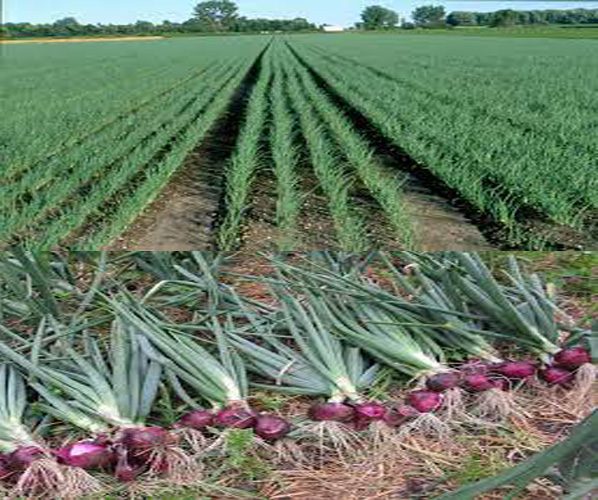Palm trees require well-draining soil for successful growth from seed. Opt for a soil mixture that provides good aeration and drainage, such as a blend of peat moss and perlite. This type of soil allows excess water to drain away, preventing waterlogging that can lead to root rot.
Palm trees thrive in warm and tropical climates. They prefer areas with mild to hot temperatures and high humidity. While some palm species can tolerate cooler temperatures, it’s generally best to provide them with a consistently warm environment for optimal growth.
Most palm tree species prefer temperatures between 75°F to 95°F (24°C to 35°C) for germination and growth. These warm temperatures help stimulate seed sprouting and encourage healthy development. Maintaining a stable and warm environment is crucial for successful palm tree growth from seed.
By ensuring the right soil, weather, and temperature conditions, you can create an ideal environment for your palm tree seeds to sprout and grow into beautiful and resilient trees.
How to Successfully Grow Palm Trees from Seeds
Step 1: Choosing the Right Palm Tree Seeds
Selecting high-quality palm tree seeds is crucial to ensure successful germination and growth. When choosing your seeds, consider the following factors:
Read Also: [Beginners guide] How to Grow Sweet Peppers
Freshness:
Opt for fresh palm tree seeds as they have a higher chance of sprouting successfully. Seeds that have been stored for a long time may lose their viability.
Species Suitability:
Different palm tree species have varying germination requirements. Research the specific species you’re interested in and acquire seeds that are suitable for your climate and growing conditions.
Read Also: [Practical Guide] How To Grow Okra From Seed To Harvest
Step 2: Seed Preparation
Before proceeding with the sprouting process, it’s essential to prepare your palm tree seeds properly. Follow these steps:
Seed Extraction:
Carefully extract the seeds from the palm fruit. This is typically done by removing the outer layer and extracting the inner seed.
Read Also: [Beginners Guide] How To Grow Vanilla Orchid At Home
Seed Cleaning:
Rinse the extracted seeds thoroughly with clean water to remove any residual fruit pulp or debris.
Seed Soaking:
Some palm tree seeds benefit from soaking in warm water for 24 to 48 hours. This process can help soften the seed coat and enhance germination. However, not all palm tree species require soaking, so refer to specific guidelines for your chosen species.
Read Also: [Beginners Guide] How To Grow Spinach In Pots
Step 3: Sprouting the Seeds
Once your palm tree seeds are prepared, it’s time to start the sprouting process. Follow these steps to maximize your chances of success:
Seed Planting:
Fill a container with a well-draining potting mix, such as a mixture of peat moss and perlite. Make sure the container has drainage holes to prevent waterlogging. Plant the seeds approximately 1-2 inches deep, with the pointed end facing upwards.
Read Also: [Beginners Guide] How to Grow Almond Tree from Seed
Moisture and Warmth:
Palm tree seeds require consistent moisture and warmth to germinate. Place a clear plastic cover or plastic wrap over the container to create a mini greenhouse effect, retaining moisture and warmth.
Optimal Temperature:
Most palm tree seeds germinate best in warm temperatures ranging from 75°F to 95°F (24°C to 35°C). Ensure the sprouting environment remains within this temperature range.
Read Also: [Beginners Guide] How To Grow Aloe Vera
Indirect Light:
While the seeds are sprouting, provide them with indirect light to promote growth. Placing the container near a bright window or using fluorescent grow lights can provide the necessary light levels.
Step 4: Nurturing Germinated Seeds
Once the palm tree seeds have sprouted, it’s time to shift your focus to nurturing the young seedlings. Follow these essential care guidelines:
Read Also: [Beginners Guide] How To Grow Ceylon Cinnamon
Gradual Acclimation:
As the seedlings emerge, gradually expose them to longer periods of indirect sunlight. This process, known as hardening off, helps them adjust to outdoor conditions.
Transplantation:
After the seedlings develop a few sets of true leaves, they can be transplanted into individual pots. Use a well-draining soil mix, and ensure the pots have proper drainage.
Read Also: [Beginners Guide] How To Grow Badam From Seed
Watering:
Water the seedlings regularly, keeping the soil slightly moist but not waterlogged. Avoid overwatering, as it can lead to root rot.
Read Also: [Beginners Guide] How To Grow Cinnamon Basil
Fertilization:
To promote healthy growth, provide your palm tree seedlings with a balanced fertilizer specifically formulated for palm trees. Follow the manufacturer’s instructions regarding application rates and frequency.
Protection from Elements:
Shield your young palm tree seedlings from harsh weather conditions, such as strong winds or extreme temperatures. Consider using shade cloth or providing temporary shelter until they become more resilient.
Read Also: How To Grow Tomatoes In Grow Bag [Expert Tips]
Pest and Disease Control:
Regularly inspect your palm tree seedlings for signs of pests or diseases. Common pests include spider mites and scale insects. If any issues are detected, promptly treat them with appropriate organic or chemical solutions.
Patience and Persistence:
Growing palm trees from seeds requires patience and persistence. It may take several months for your seedlings to develop into established plants. Continue providing proper care, and over time, you’ll witness the beauty of your palm tree oasis flourishing.
Read Also: [Beginners Guide] How To Grow Cinnamon Indoor
How long does it take for palm tree seeds to sprout?
The germination time for palm tree seeds can vary depending on the species and environmental conditions. In general, it can take anywhere from several weeks to several months for the seeds to sprout. Be patient and provide the necessary care during this period.
Can all palm tree species be sprouted from seeds?
Yes, most palm tree species can be sprouted from seeds. However, it’s important to note that some palm species have more challenging germination requirements or slower growth rates. Research the specific species you’re interested in to understand their unique characteristics and needs.
Read Also: [Beginners Guide] How To Grow Eastern Red Cedar
Do palm tree seeds require special treatment before planting?
Some palm tree seeds may benefit from pre-planting treatments such as soaking or scarification (scratching the seed coat). However, not all species require these treatments. It’s recommended to research the specific requirements of the palm tree species you’re working with.
Read Also: [Beginners Guide] How To Grow Curry Leaves in the US
What is the ideal soil mix for sprouting palm tree seeds?
Palm trees prefer well-draining soil mixes. A combination of peat moss and perlite is commonly used for palm tree seed germination. This mixture allows for adequate moisture retention while preventing waterlogging, which can be detrimental to seedling growth.
When should I transplant the sprouted palm tree seedlings?
Once the sprouted seedlings have developed a few sets of true leaves, they can be safely transplanted into individual pots. This usually occurs when the seedlings are several inches tall. Use a well-draining soil mix and provide proper drainage in the pots.
Read Also: How to Grow Ginger [Complete Growing Manual]
Can I grow palm trees indoors?
Yes, many palm tree species can be grown indoors as long as they receive sufficient light and proper care. Choose smaller palm varieties that are suitable for indoor cultivation and place them near a bright window or provide supplemental grow lights.
Read Also: [Beginners Guide] How to Grow Garlic: Complete Handle book
Are palm trees suitable for all climates?
Palm trees have different climatic preferences, and not all species are suitable for every climate. Some palm trees thrive in tropical or subtropical climates, while others are more cold-hardy and can withstand lower temperatures. Research the specific palm tree species that are suitable for your climate zone.
Read Also: [Beginners Guide] How To Grow Onions: Complete Handbook
Remember, successfully sprouting palm trees from seeds requires attention to detail, patience, and providing the ideal growing conditions. By following the guidelines outlined in this article and addressing any specific requirements of your chosen palm tree species, you can enjoy the rewarding experience of watching your palm trees grow and transform your landscape into a tropical haven.
Conclusion
Congratulations! You now possess the knowledge to successfully sprout palm trees from seeds and nurture them into healthy, thriving trees. Remember to choose high-quality seeds, properly prepare them, and provide the ideal sprouting conditions. Once the seeds germinate, focus on caring for the young seedlings, ensuring they receive adequate moisture, light, and nutrients.
By following the step-by-step guidelines outlined in this article, you are well on your way to cultivating a magnificent palm tree paradise. Embrace the process, exercise patience, and enjoy the journey of watching your palm trees grow and flourish. Now, go ahead and embark on your palm tree sprouting adventure with confidence and enthusiasm!




